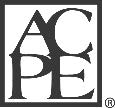Navigating Medicare Advantage Plans: Maximizing Plan Utilization for Better Health Outcomes
Medicare is a national health insurance program run by the federal government of the United States available to adults aged 65 or older and those younger with certain disease states and disabilities. With over 66 million participants enrolled, it is one of the largest health insurance programs in the country and consists of four major parts: A, B, C, and D. Healthcare providers, including pharmacists and pharmacy technicians, must be familiar with each of these parts because different parts provide different patient benefits. This program will review the different parts of Medicare and provide strategies for navigating the parts to help provide optimum outcomes for patients.
Target Audience
This knowledge-based program is intended for Pharmacists (ACPE) and Pharmacy Technicians (ACPE).
Learning Objectives
- Describe the differences between Original Medicare and Medicare Advantage plans.
- Review Medicare Advantage plan enrollment, payments, and quality measures.
- Discuss Medicare Advantage plans coverage and benefits.
- Identify ways in which pharmacy personnel can assist patients in navigating over-the-counter (OTC) medication benefits offered by Medicare Advantage plans.
- Describe how pharmacy personnel can help Medicare beneficiaries optimize the use of Medicare Advantage plans
This is a paper continuing education program. The material document is located within the course content. Once you have registered for the course, please navigate to the 'Take Course' tab and click the navy blue 'Take Course' button. Navigate to the 'Course Materials' section of the course using the left-hand menu and download a PDF version.
Salisa C Westrick, BS Pharm, PhD, FAPhA is a Sterling Professor and Department Head of Health Outcomes Research and Policy, Harrison College of Pharmacy, Auburn University.
Education:
B.S., Pharmacy - Chulalongkorn University (Thailand), 1997
M.S., Training and Development - Illinois State, 2000
Ph.D., Social and Administrative Sciences in Pharmacy - Wisconsin, 2004
Her first research goal is to improve the quality of health care and patient health outcomes through promoting the uptake of evidence-based innovations. She has used organization theories and implementation science principles to guide her research. She has studied the adoption, implementation and evaluation of various types of healthcare innovations. Her second research goal is to increase access to care among older adults, especially those with limited income. Her work has assisted seniors in making Part D plan selection decisions and enrolled them in subsidy programs.
She has partnered with multiple community agencies and national associations to execute her research programs including Area Agencies on Aging in Alabama, Alabama Cooperative Extension System, National Community Pharmacists Association, and American Pharmacists Association. Her work has received funding from various agencies including the Centers for Disease Control and Prevention, Alabama Department of Senior Services, Alabama Department of Public Health, and Pharmaceutical Companies.
This CE program was funded by Haleon Group but was not involved in the creation of the program content in any way. The authors have no other relevant affiliations or financial relationships with a commercial interest to disclose.
 Auburn University is accredited by the Accreditation Council for Pharmacy Education as a provider of continuing pharmacy education; credits are recognized nationwide. The Universal Activity Number for this knowledge-based program is 0001-0000-24-025-H04-P/T and is intended for pharmacists and pharmacy technicians. The initial release date for this home-study program is June 28, 2024, and the intended expiration date is June 28, 2027.
Auburn University is accredited by the Accreditation Council for Pharmacy Education as a provider of continuing pharmacy education; credits are recognized nationwide. The Universal Activity Number for this knowledge-based program is 0001-0000-24-025-H04-P/T and is intended for pharmacists and pharmacy technicians. The initial release date for this home-study program is June 28, 2024, and the intended expiration date is June 28, 2027.
Available Credit
- 2.00 ACPE PharmacyAuburn University is accredited by the Accreditation Council for Pharmacy Education as a provider of continuing pharmacy education; credits are recognized nationwide.
- 2.00 ACPE TechnicianAuburn University is accredited by the Accreditation Council for Pharmacy Education as a provider of continuing pharmacy education; credits are recognized nationwide.

 Facebook
Facebook X
X LinkedIn
LinkedIn Forward
Forward